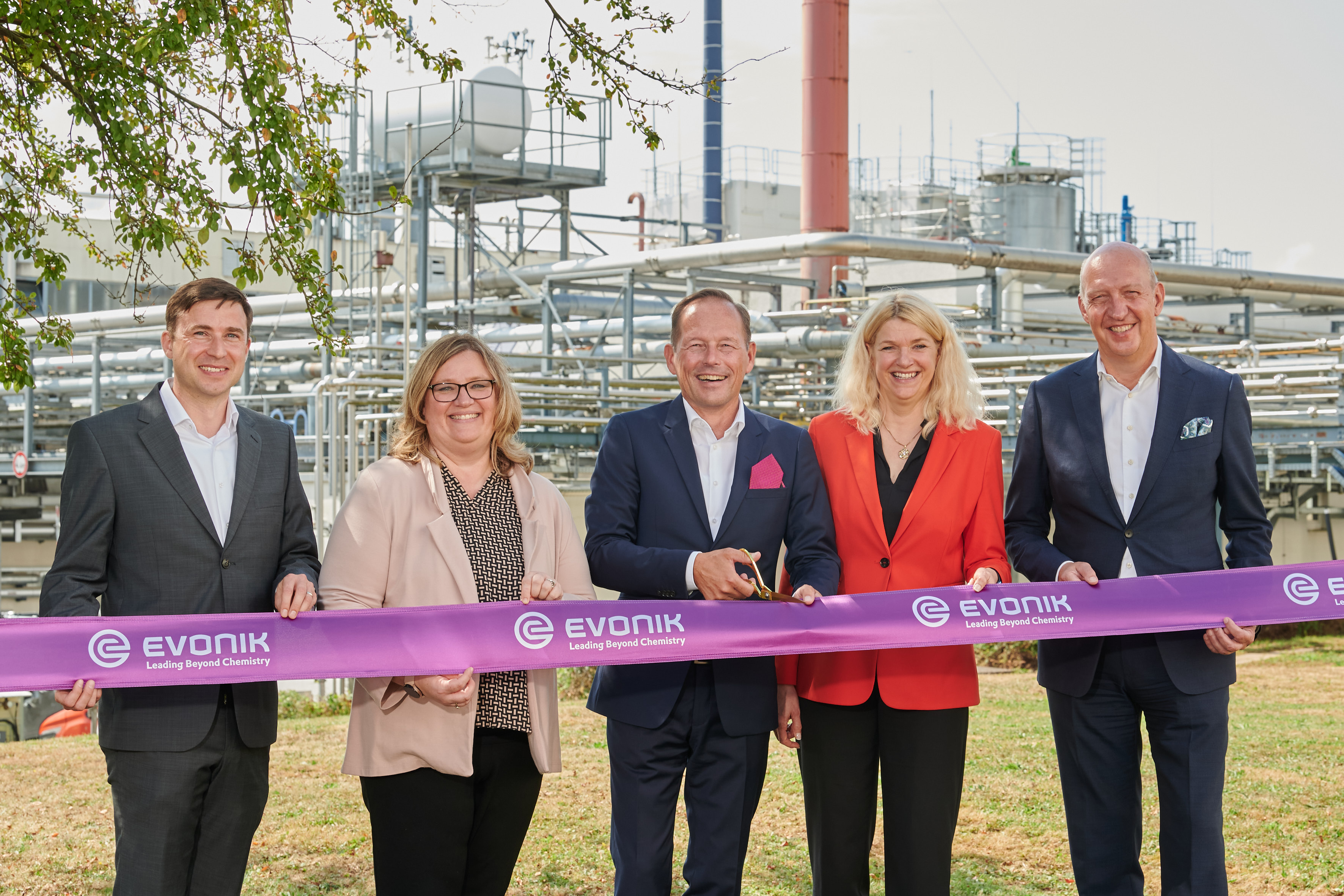
Evonik emollients plant opened
Submitted by:
Andrew Warmington
Evonik has officially opened its new “double-digit million-euro” production plant for cosmetic emollients at Steinau, Germany. This will use an enzymatic esterification process from the company’s biotechnology platform to convert vegetable oils. “This investment helps us lower our footprint, while supporting the beauty industry in its transformation – meeting the demand for more responsible, eco-friendly solutions,” said Johann-Caspar Gammelin, president of the Nutrition & Care division.
Emollients typically make up 10-25% of cosmetic emulsions but account for 70-80% of a product’s climate footprint. Evonik claims that its process makes it possible to reduce a product’s climate footprint by more than 60%. In addition, like all of its Care Solutions sites, Steinau uses only renewable energy.
In addition, Evonik completed the sale of its superabsorbents business unit to the International Chemical Investors Group (ICIG) at the end of August, following approval by the competition authorities. The business generated sales of €892 million in 2023 and has around 1,000 employees at three sites in Germany and two in the US. This is the second of three planed sales from the Performance Materials division. ICIG had already acquired the Lülsdorf site and its associated businesses and Evonik is now “sounding out the market situation for a possible start of the sales process” for the Performance Intermediates business line.
Shortly before that, Evonik had also completed the expansion of DL-methionine production at Singapore’s Jurong Island, bringing the total capacity to 340,000 tonnes/year. Following shutdowns in Q4 2023 and Q2 2024, the facilities are now running at full capacity. The plant is powered by green hydrogen from Linde’s new 9 Mw alkaline electrolyser plant, the largest of its kind ever installed in Singapore. Via process intensification, Evonik has also optimised methionine production to generate a surplus of steam that is used to produce on-site electricity. This has all reduced the product’s carbon footprint by 6%.
